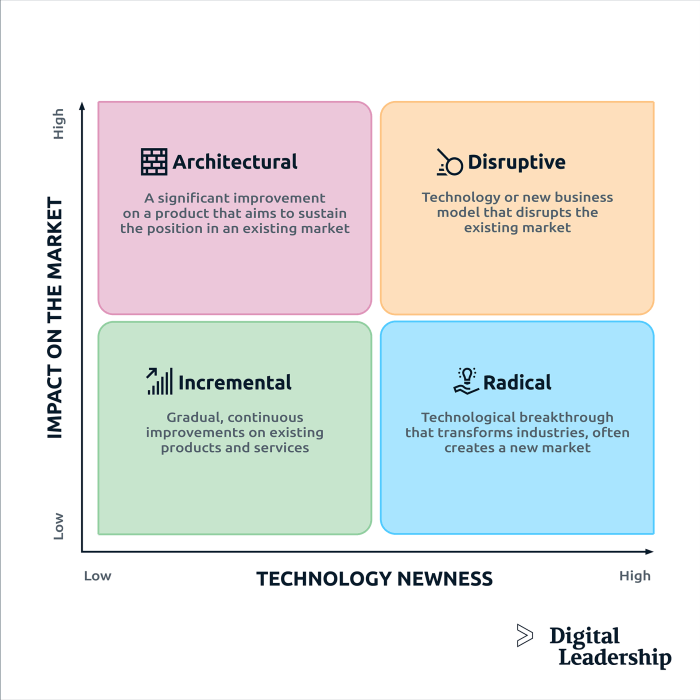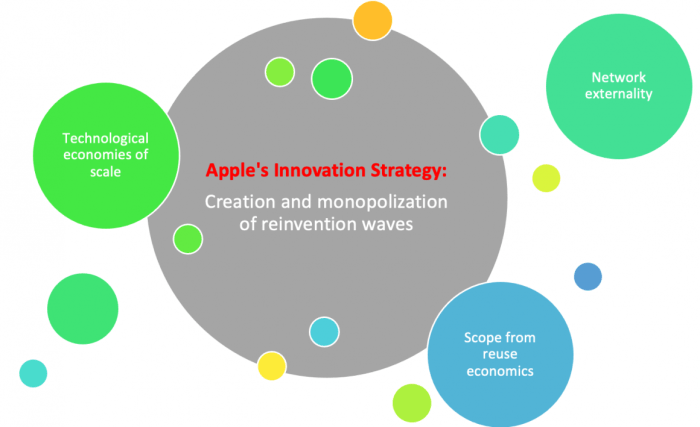A factor favoring the success of disruptive innovation is that disruptive innovators often do not have to deal with the burden of legacy systems. Legacy systems are existing systems, technologies, or processes that are outdated and can hinder the adoption of new innovations.
Disruptive innovators, on the other hand, can start with a clean slate and design their products and services without the constraints of legacy systems.
This can give disruptive innovators a significant advantage over incumbents, who may be slow to adopt new technologies due to the high costs and risks associated with replacing legacy systems. Disruptive innovators can also be more agile and responsive to customer needs, as they do not have to worry about the compatibility of their new products and services with existing systems.
The Nature of Disruptive Innovation: A Factor Favoring The Success Of Disruptive Innovation Is That

Disruptive innovations are innovations that create new markets and value networks, often by introducing simpler, more affordable, and more convenient products or services. They differ from incremental innovations, which improve upon existing products or services in the same market.
Examples of successful disruptive innovations include the personal computer, the internet, and the smartphone.
Factors Favoring Success of Disruptive Innovation
Several factors contribute to the success of disruptive innovations, including:
- First-mover advantage:Disruptive innovators who are first to market can establish a strong foothold and build a loyal customer base.
- Lack of legacy systems:Disruptive innovators do not have to deal with the burden of legacy systems, which can slow down innovation and make it difficult to adapt to changing market conditions.
Challenges Faced by Disruptive Innovators
Disruptive innovators also face a number of challenges, including:
- Difficulty scaling up:Disruptive innovations often start out in niche markets and can be difficult to scale up to mainstream markets.
- Resistance to change:Customers and incumbents may be resistant to change, making it difficult for disruptive innovators to gain traction.
Strategies for Successful Disruptive Innovation, A factor favoring the success of disruptive innovation is that
Disruptive innovators can increase their chances of success by following these strategies:
- Building a strong customer base:Disruptive innovators need to focus on building a strong customer base in their niche market.
- Creating a competitive advantage:Disruptive innovators need to create a competitive advantage by offering products or services that are superior to those of incumbents.
Question & Answer Hub
What is a legacy system?
A legacy system is an existing system, technology, or process that is outdated and can hinder the adoption of new innovations.
How can the absence of legacy systems benefit disruptive innovators?
The absence of legacy systems can benefit disruptive innovators by giving them a clean slate to design their products and services without the constraints of existing systems. This can make them more agile and responsive to customer needs.
What are some examples of disruptive innovations that have benefited from the absence of legacy systems?
Some examples of disruptive innovations that have benefited from the absence of legacy systems include the rise of cloud computing, the development of mobile apps, and the growth of social media.

